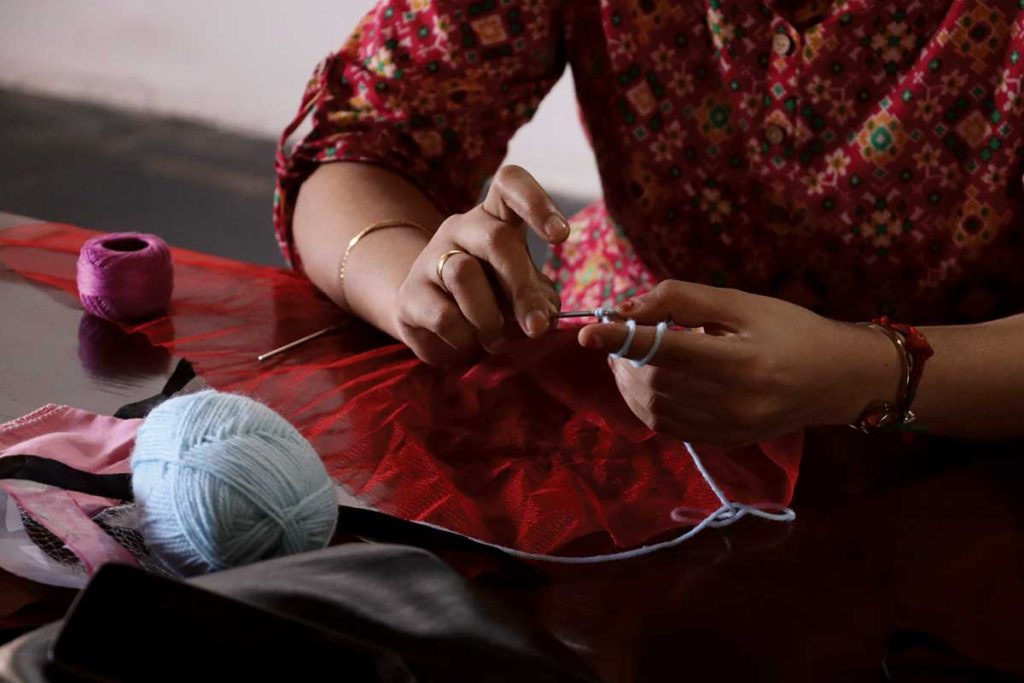
Rain on the windowpane. Grey skies as far as the eye can see. In the summer, we might find ourselves painting, playing sports, picking berries, and chasing kids and pets in the yard. Let’s be honest, though: motivating ourselves for leisure activities can feel much harder in the wintertime. But, even if the weather outside is frightful, keeping your creativity and activity levels alive during the winter months can benefit both your physical and mental health.
Winter’s chill
The winter blues are not all in our heads. Between November and March, on particularly colorless days, we can sometimes feel listless and depleted. Busy autumn schedules can make us feel burned out before the holiday party season has even arrived. Add to this the fact that being less exposed to sunlight can weaken our immune systems and disturb our sleeping patterns.
Cold weather leads to more time indoors, bumping up our chances of catching a cold or the flu and taking a toll on asthmatics who are sensitive to cold air. Some people also suffer the effects of seasonal affective disorder (SAD), a serious condition linked to a lack of sunlight exposure. All of this can leave us feeling anything but active and creative.
Stay creative, stay well
Engaging in leisure activities that exercise your creativity can help you to hang in there through the winter. Think about how you feel after completing a project that you undertook just for you—not for work, or for anyone else. That feeling of satisfaction, and the “flow state” we often get into to achieve it, can give us a glow that no wind chill can blow away.
Studies show that creative leisure activities can have a positive impact on mental and physical health. In studies on creativity and well-being, researchers have focused on activities like the following:
- making music
- drawing and painting
- writing creatively
- sewing, knitting, and making other handicrafts
- collecting
- building things (carpentry)
- acting and storytelling
For example, these activities can help to reduce symptoms of depression in adults and help children to feel more calm and secure. They can also keep our brains healthy as we age.
One of the potential reasons for this is that creative work activates mechanisms in our nervous system that help us to relax. Researchers have also found that creative work is good for our sense of self and strengthens mental resilience.
Meanwhile, social leisure activities strengthen our community ties and relationships. This is one reason why hobbies like volunteering and playing sports can improve physical and mental health.
Get inspired
There are many ways you can bring some creativity and leisure into your life this winter. First, think about what you enjoy doing in the warmer months. Is it sitting outside with a good book? Is it playing sports in the park?
Now, think about how you can adapt to the current season. Maybe soccer is out of the question, but badminton at the community center may be just a short drive away. Perhaps a novel on the porch won’t be possible until May, but in the meantime, a warm bath with a crossword puzzle might be calling your name.
Or why try out a new activity entirely? Maybe the shorter days mean you feel less guilt about not getting out of the house, so you and the kids are free to cast, direct, and design your own mini-Shakespearean home-theatre experience. If you love gardening, consider using winter days to plan out your summer garden on some graph paper; if you love dancing, try moving like nobody’s watching with online dance classes on YouTube.
Feeling stuck?
If you’re still struggling to activate your spark, try appointing someone you trust as a “creativity buddy.” Having a partner to keep you motivated and accountable is a classic strategy for physical exercise, and it can work for leisure as well. For example, invite a friend or family member to knit or work on a puzzle with you. You’ll get time that’s creative and social, and getting started always feels less daunting when you don’t need to go it alone.
Community connections
One way to beat the winter blues is by participating in a wellness retreat. These programs, which vary in length, offer the opportunity to engage in creative and calming activities like art, yoga, and meditation.
Creating the habit of engaging in these activities can provide lasting benefits even months after you’ve gone home. Meanwhile, retreats give you the chance to meet new people and form new friendships, which can be energizing over the winter, when we’re spending more time at home.
You may not need to travel far to partake in a retreat—try researching options in your local area. Look for one that offers some exposure to or views of nature, which can also provide health benefits.
This article was originally published in the November 2024 issue of delicious living magazine.
This article originally appeared on alive.com as “Creative Comforts.”